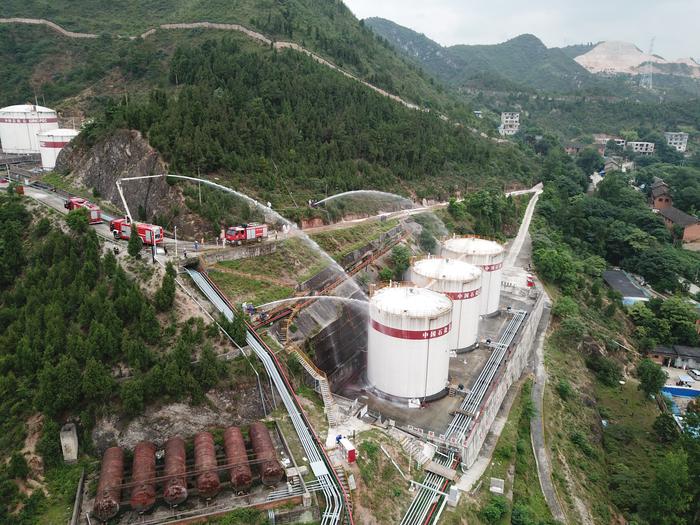|
| 2019-07-08 来源: 中国石化新闻网 |
| 石化新闻 |
|
中国石化新闻网讯 据油气新闻7月4日消息称,印度正在实施世界上规模最大的可再生能源扩张计划之一,该计划到2022年将需要800亿美元左右的额外投资,到2023年至2030年将增加两倍多,至2500亿美元。 根据2019年的《经济调查》,以当前价格进行的投资估算,印度凭借雄心勃勃的产能扩张计划,已成为全球最大的可再生能源生产国之一。 印度议会财政部长Nirmala Sitharaman在印度议会提出的调查表明,印度在全球风能、太阳能和可再生能源装机容量方面分别排名第四、第五和第五。可再生能源在总发电量中所占比例从2014至2015年的6%升至2018年至2019的10%。 印度的可再生能源装机容量约为80千兆瓦(GW),并且正在运行世界上最大的可再生能源项目,计划到2030年达到175千兆瓦,到2030年达到500千兆瓦,这是其气候承诺的一部分。 该调查指出,可再生能源是一种战略性国家资源,并补充说:“利用这些资源是印度实现社会公平和能源转型的愿景的一部分,实现能源安全、更强大的经济和减缓气候变化”。 调查指出,尽管增加能源供应很重要,但与发达经济体以往的做法相比,这一做法对环境造成的代价要低得多,这也是势在必行的。 该调查补充称,尽管可再生能源产能已得到多方面的扩大,但化石燃料能源可能仍将是一个重要的电力来源。 曹海斌 摘译自 油气新闻 原文如下: India Eyes $250 bln for Renewable Energy India is undertaking one of the world’s largest renewable energy expansion programs, which will require additional investments of around $80 billion till 2022, growing more than threefold to $250 billion during 2023-30. According to the Economic Survey 2019, the investment estimates, which have been made at current prices, come at a time when India has become one of the top renewable producers globally with ambitious capacity expansion plans. The Survey presented in the Indian Parliament by the Finance Minister Nirmala Sitharaman said that globally India stands 4th in wind power, 5th in solar power and 5th in overall renewable power installed capacity The share of renewables in total electricity generation increased from 6 per cent in 2014-15 to 10 per cent in 2018-19. India has an installed renewable energy capacity of about 80 gigawatts (GW) and is running the world’s largest renewable energy program with plans to achieve 175GW by 2022 and 500GW by 2030, as part of its climate commitments. The Survey states that renewable energy sources are a strategic national resource and adds, “Harnessing these resources is part of India’s vision to achieve social equity and energy transition with energy security, a stronger economy and climate change mitigation”. While increasing access to energy is important, it is also imperative that this comes at much lower costs to the environment than it has happened historically in advanced economies, the Survey states. While renewable energy capacity has been expanded manifold, fossil fuel based energy is likely to continue to be an important source of power, the Survey adds.
|








